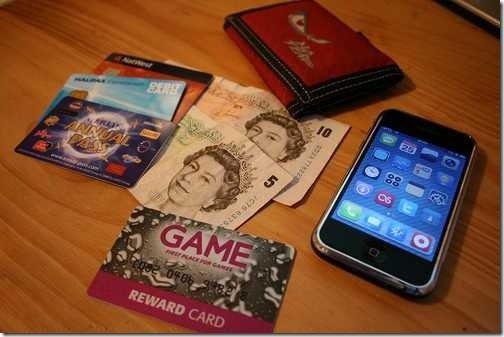Over the last month or so there have been increasing reports of mobile technology apps aimed at replacing the need for consumers carrying the traditional wallet and credit card and instead loading all of that information into your smartphone.
Google is one of the ringleaders of this new venture, and has been slowly trying to phase out the Google Checkout option in favor of the newer Google Wallet app.
However, as cutting-edge as this technology is, not very many retailers seem to be jumping ship from the more traditional methods of payment, despite the ease with which consumers can make purchases from their phones.
So why aren’t more retailers excited about this cutting edge technology?
One reason is that no one has figured out if it’s worth the investment yet. Because the technology is offered in such limited quantities, it’s hard to discern how consumers are responding.
Currently the only phone compatible with the Google Wallet is the Sprint Nexus S phone and even then you can only utilize it with that phone if you’re using a Citibank MasterCard or a pre-paid Google card. But the drawbacks don’t stop there, because even if you have that phone and those cards, you can only use them for purchases if the retailer has the MasterCard Pay-Pass technology.
"Mobile marketing, along with consumer loyalty, will be in the front seat as well and will be critical in helping to drive the growth and adoption of NFC. While the idea of contactless payments is intriguing, there is increasingly an awareness that tapping a phone to pay for an item will not sell itself. … Discounts, daily deals and loyalty reward programs can be activated through NFC technologies," Ryan Kim, who writes for GigaOm, explained.
Another factor that will affect the growth of mobile payments is the ever increasing threat of mobile malware targeting android devices. Read McAfee threats report: Android is in the crosshairs
Over the next several months and into the upcoming year the mobile technology will continue to be developed until it is more the norm than the exception. The hope is for retailers to create a different, more intimate bond with the incoming consumers.
"Today, retailers learn about customers at the least effective time — just when they’re leaving the store. They’d like to know about you when you arrive at the store, so they can customize your shopping experience and treat you properly," David Marcus, who is the mobile VP for PayPal, said.
As creepy as that may sound, we as consumers have shown time and again how open we are to having other people do the thinking for us – just reference Facebook for that.
Author Bio
Please Rate This Post:Melanie Slaugh is enthusiastic about the growing prospects and opportunities of various industries and writing articles on various consumer goods and services as a freelance writer. She writes extensively for internet service providers and also topics related to internet service providers in my area for presenting the consumers, the information they need to choose the right Internet package for them. She can be reached at slaugh.slaugh907 @ gmail.com.
You’ll also like:
Please share this article to help others. Thanks
